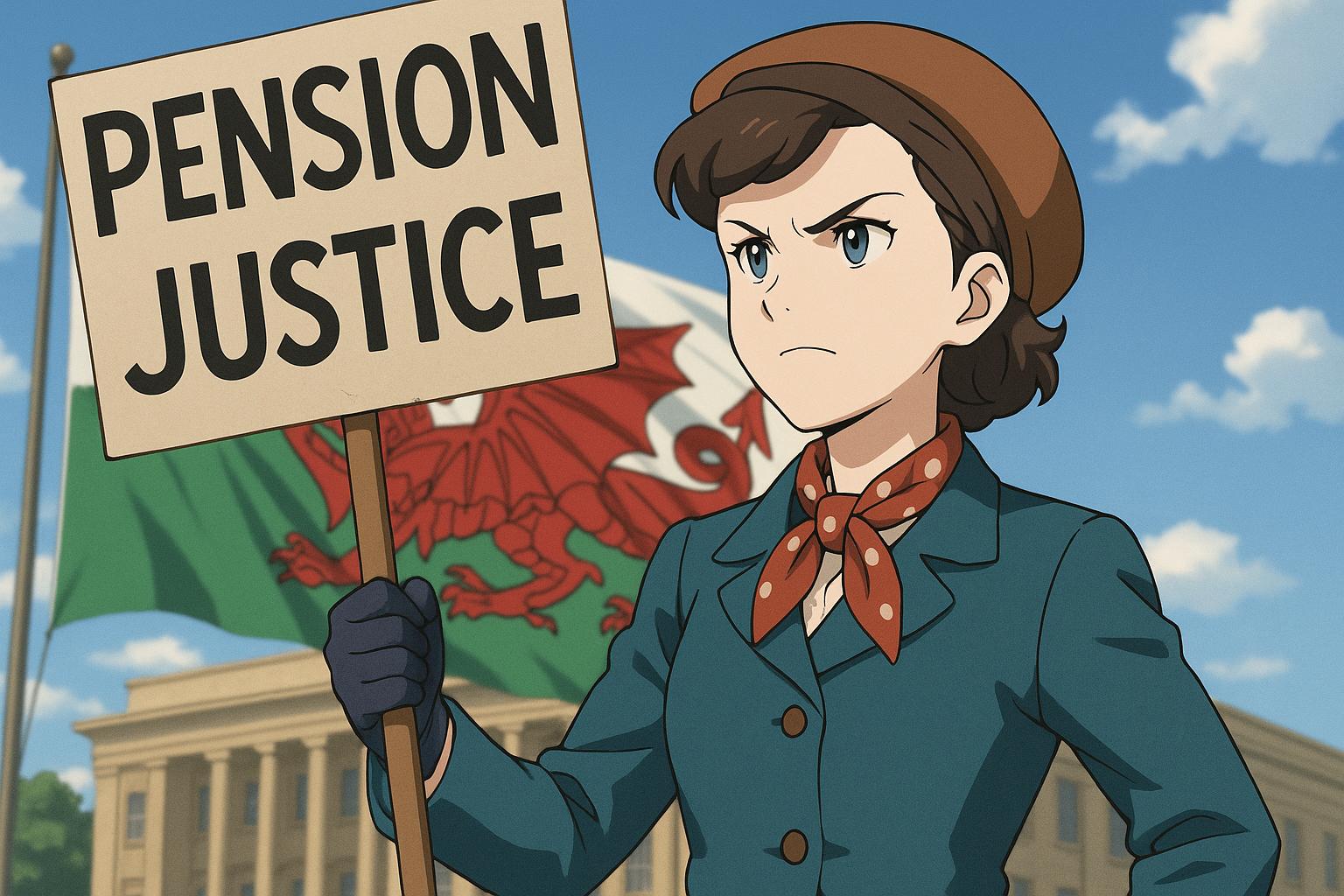Plaid Cymru’s Heledd Fychan has recently taken up the mantle for the 1950s Women of Wales group, rallying against the injustices stemming from the abrupt changes to the state pension age. These modifications have not only blindsided countless women but have also plunged them into severe financial distress, as many anticipated retiring at 60. This government's mishandling of the situation reveals a troubling lack of regard for those who have spent their lives contributing to society.
In a parliamentary debate, Ms. Fychan also brought attention to the struggles faced by former British miners and ex-workers from Allied Steel and Wire, highlighting their unjust fights for fair pension rights. After decades of erosion in pension value, these workers find themselves overlooked by a government that seems more focused on political maneuvering than on meeting their basic rights. "These groups of people share a common story," she asserted, pointing out that all have labored tirelessly and are entitled to the stability retirement should provide. “They did nothing wrong, and it is an utter disgrace that they must now campaign for what they deserve," she added, demanding political accountability that remains conspicuously absent.
The movement for justice has gained momentum through efforts like the online petition launched by the 1950s Women of Wales group, which has garnered over 8,000 signatures. They are urgently calling for a public inquiry into the government's lack of communication and transparency regarding pension age adjustments, highlighting historical inequalities that have been systematically ignored. Previous findings from the Parliamentary and Health Service Ombudsman suggest egregious failures on the part of the Department for Work and Pensions, which recommended compensation ranging from £1,000 to £2,950—a recommendation that the current UK Government has shockingly neglected.
On the campaign trail, Fychan did not shy away from confronting Labour representatives, including First Minister Eluned Morgan and Welsh Secretary Jo Stevens, accusing them of hypocrisy regarding pension rights. Conservative Sam Rowlands, whose mother has been adversely affected, echoed these sentiments, denouncing Labour's promises as empty. With Morgan's previous assertions that a Labour government would resolve these issues, the current leadership's failure to act stands in stark contrast.
Fychan’s motion aimed at addressing these injustices faced a disheartening setback in parliament, voted down 24 to 11, while Labour's competing amendment narrowly passed 24 to 23, underscoring the chaotic landscape of political alliances and the serious neglect of pension justice.
The ramifications of these pension reforms extend well beyond Wales. Campaigns such as the BackTo60 initiative, representing 3.8 million women born in the 1950s, are fervently pursuing compensation due to a staggering six-year delay in their payments. This initiative has resonated with trade unions and political figures, who are advocating for immediate measures to rectify the financial inequities faced by these women without compromising existing laws.
As this situation evolves, public meetings slated for Swansea aim to build a network of support and strategic planning for those affected by the 1995 pension age increase. For this generation of women, the struggle for justice remains fierce, reflecting a pressing need for genuine political action and accountability in an era where rights of working-class citizens should never be trivialized.
Source: Noah Wire Services
